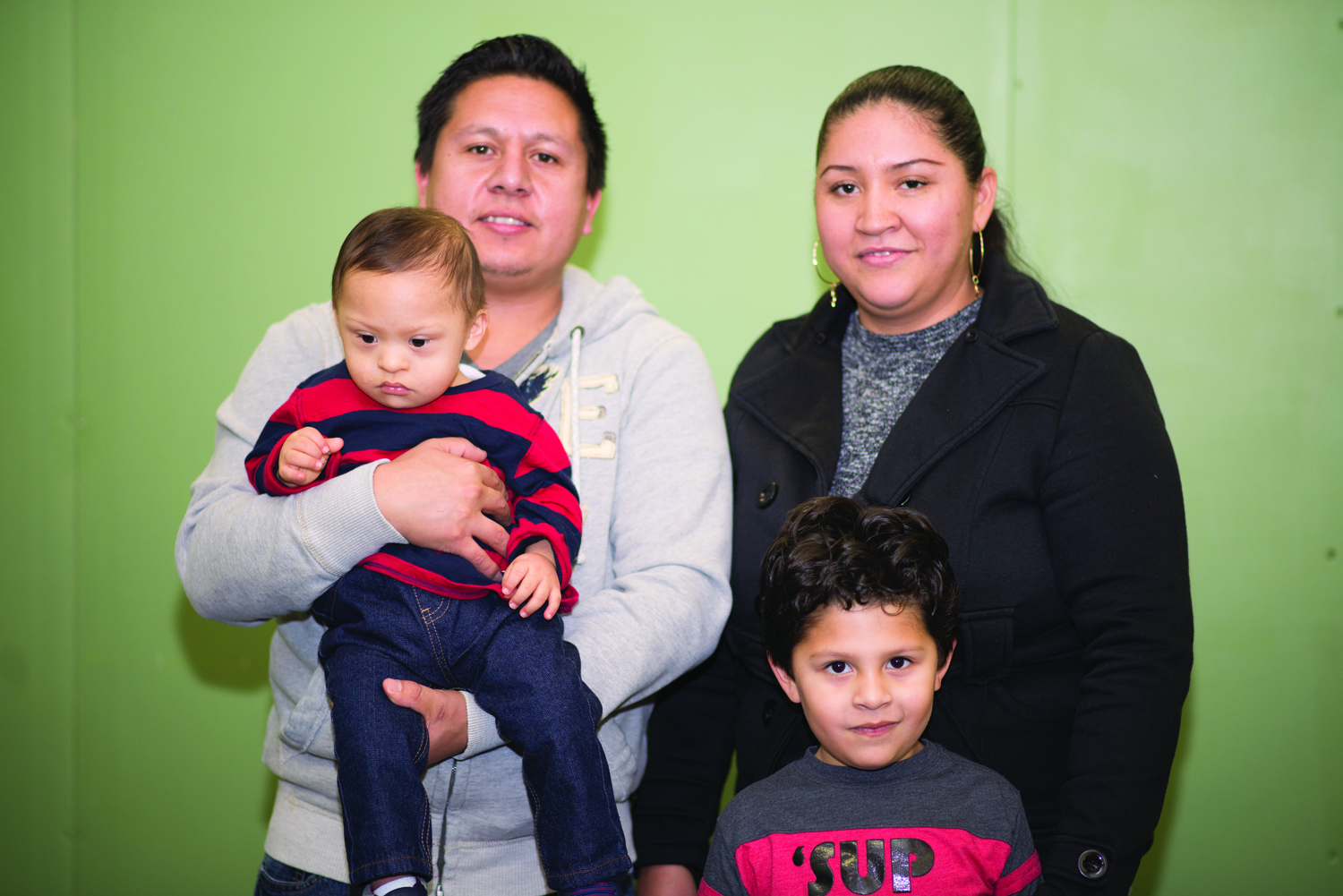Mano Amiga: Louisville’s La Casita Center Provides Helping Hands For Latino Families & Their Children With Disabilities
It nearly broke Raquel Covarrubias’s heart when the pediatrician told her the news.
After all, the nurses at the hospital had said her newborn baby Erick was fine.
But here she was, three weeks after his birth, faced with the news that her baby had Down syndrome, and she didn’t know where to turn.
During that time, Covarrubias, husband Daniel Ortega, and child Edgar Ortega, along with baby Erick, finally found a place where they no longer felt so alone.
The Louisville-based nonprofit, La Casita Center, welcomed them with open arms and connected them with others who had children with special needs in Louisville’s Hispanic/Latino community.
Thanks to the Una Mano Amiga Support Group, the Ortegas – and many families like them – were connected to other Spanish-speaking families who have children with special needs.
“Here they feel safe and welcome and belong to a community that accepts and supports them,” La Casita Director Karina Barillas said.
“We create a safe space to try to see what their needs are.”
Una Mano Amiga was launched in 2013 by the Commission for Children with Special Health Care Needs in partnership with the Department of Pediatrics of the University of Louisville and La Casita Center.
In 2015, the program expanded and offered family groups at Family Health Centers.
The program has been helped by Dr. Fernanda Nota, of the U of L Department of Pediatrics, and Dr. Julia Richerson with the Family Health Center.
The program offers support groups for families and one for mothers. A support group for fathers will be started this year.
The goal is to educate, empower and support its members.
The program currently serves about 60 families.
Because the community is young, many of the children with special needs that La Casita Center serves are young children, babies and toddlers.
The special needs vary widely across the families, with some children experiencing learning disabilities, autism and Down syndrome among other disabilities.
Some children have one diagnosis, while others may be coping with many.
Families hail from Latino countries, with the largest number coming from Mexico.
Others come from Cuba, Brazil, the Dominican Republic, Guatemala, Honduras and Puerto Rico.
“We are supporting them in getting access and diagnosis and understanding it,” Barillas said.
She noted that there are many helpful, local services available, but that administrators often had trouble reaching this segment of the community, typically because of the language barrier.
“We don’t want to reinvent the wheel,” Barillas said. “We’re a liaison between the families and the mainstream.
“We’re just helping them find the services that are already there.”
 For Covarrubias and her husband, the group has been a lifeline.
For Covarrubias and her husband, the group has been a lifeline.
The couple is from Mexico and has lived in the United States for about 10 years.
“For us, it’s been a blessing to know we’re not alone,” Covarrubias said, through Barillas as her interpreter.
“It’s helped me accept my child’s condition because at first it was very hard to accept.”
Erick is now 15 months old, and his mother stays home with him.
She helps perform therapy on him and takes him to speech, and physical and development intervention therapy each week while his father is at work.
It’s not easy. If you don’t stimulate and push him, Erick won’t progress, Covarrubias said.
Slowly but surely, he’s moving more and just starting to crawl.
Babies with Down syndrome typically experience delays in certain areas of development while often achieving the same milestones as other children, just on their own timetable.
It’s been very helpful coming to La Casita, Ortega said, where the family group meets.
“Every time we come here we get to see people who are experts in the areas,” he said.
“Any questions we want to answer they tell us.”
Thanks to the center, Covarrubias feels more empowered. She knows what rights Erick has in school.
She also knows how to speak up when she’s uncomfortable with someone doing therapy, like when he was being held in a way she didn’t like by a therapist.
Barillas noted that in the Latino culture, being polite and showing respect is so valued it can make it challenging for parents to speak up in a situation where they are unhappy or uncomfortable.
They fear that they will appear disrespectful.
Covarrubias also knows now that she can request an interpreter.
Although she understands and speaks some English, the nature of therapy and its use of anatomical expressions make it especially difficult to operate in a second language.
She noted that her new knowledge has also helped her be more effective in managing the education at school of her 5-year-old son Edgar.
She admits that working with Erick can be tiring, but that with the help of her husband, and the support and helpful information from La Casita Center groups they both attend, it is more manageable now.
Plus, seeing Erick’s smile always cheers her up.
“Now we feel he’s a big blessing because he’s united us much more,” she said.
Added Ortega: “He’s enchanting. He’s always smiling.”
Ortega said he noticed a marked improvement in his wife’s attitude and happiness once she found the support at La Casita Center.
“I realized the change and realized how at ease she was when she came home with the new information for the whole family,” he said.
“We would never want for this place to be closed. It supports us and makes us feel not alone.”

